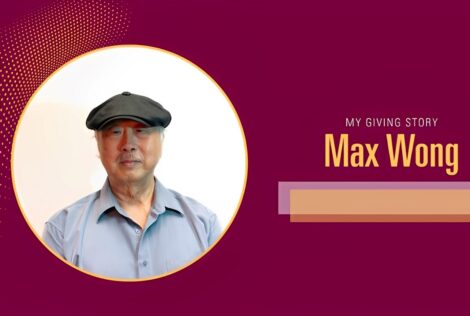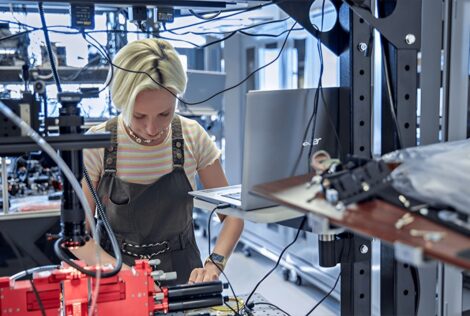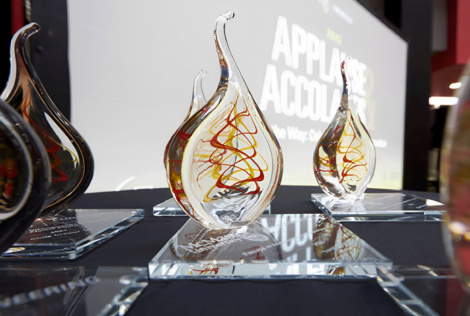
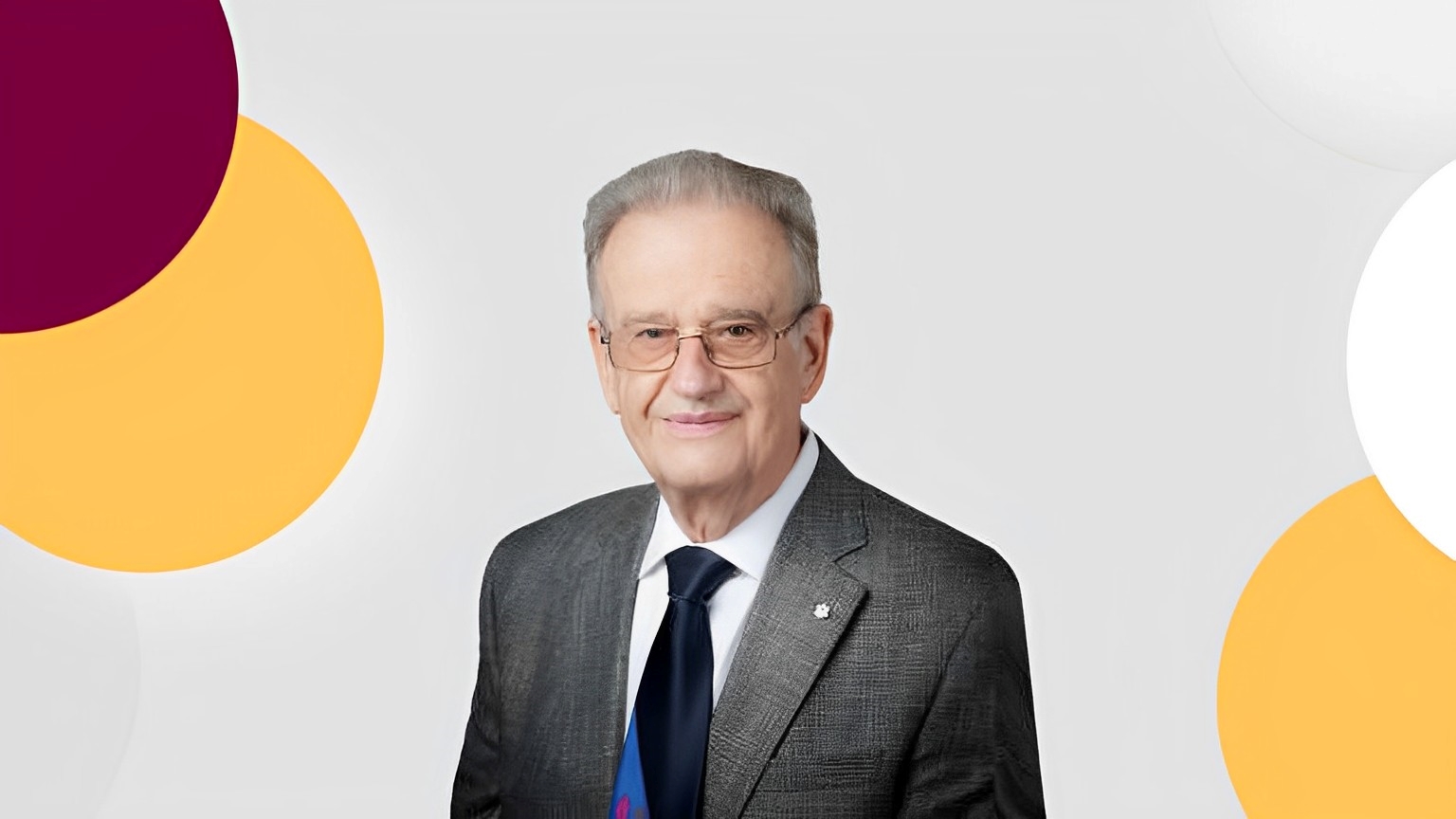
John Bandler, professor emeritus and former Dean of the Faculty, has received the 2023 Institute of Electrical and Electronics Engineers (IEEE) Electromagnetics Award for contributions to electromagnetic optimization and the modeling of high-frequency structures, circuits and devices.
John Bandler is no stranger to being doubted.
When the professor emeritus, department of electrical and computer engineering, looks back on his career, he recalls having to push for his innovative pursuits.
And in the face of that doubt, Bandler rose.
“Everything that I’m known for are things people discouraged me from doing,” he says.
Bandler has been awarded the 2023 IEEE Electromagnetics Award, which is among the institute’s most prestigious honours. Each year, the board recommends individuals “whose exceptional achievements and outstanding contributions have made a lasting impact on technology, society, and the engineering profession.”
The engineer and entrepreneur is being recognized “for contributions to electromagnetic optimization and the modeling of high-frequency structures, circuits, and devices.”
“It really is a big deal,” he says. “When I look at the list of prior recipients, they’re superstars in the electromagnetics field. It came as a real shock.”
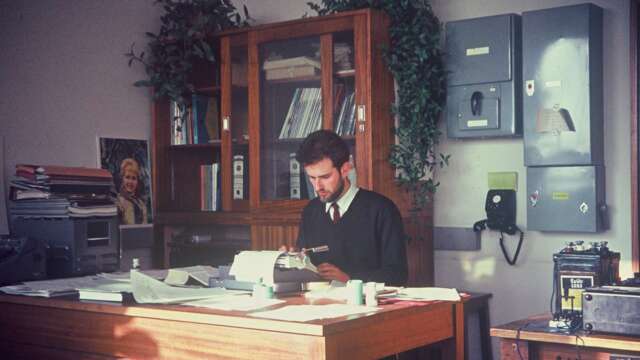
Bandler sees the IEEE technical field award as further affirmation of other distinguished honours.
Among them, he has received the IEEE Microwave Theory and Techniques Society’s Microwave Application Award (2004) as well as the Microwave Career Award (2013), where he became the first Canadian to be awarded the society’s most prestigious achievement.
Bandler notes how special it is to be recognized by the institute in the electromagnetics field.
“I had dreamt of electromagnetic optimization for years and years. And notable experts in electromagnetics thought this was impossible,” he says.
Bandler is the inventor of space mapping technology, which although originating in the microwave community – drastically accelerating electromagnetic optimization – spread throughout industry in a wide variety of applications, including optimal design of handset antennas, aircraft wing curvature, and vehicle crashworthiness. He is also the founder of Optimization Systems Associates Inc. – acquired by Hewlett-Packard Company in 1997 – and the president of Bandler Corporation.
His hard work and considerable influence on the field is reflected in milestone achievements that have kept him ahead of the curve.
A Fellow of several societies, including the IEEE, the Royal Society of Canada, and the Canadian Academy of Engineering, Bandler has received the Queen Elizabeth II Diamond Jubilee Medal and IEEE Canada McNaughton Gold Medal (2012) and was appointed Officer of the Order of Canada (2016). He was awarded the Professional Engineers Ontario Gold Medal (2018.)
His connections to McMaster University stretch back to 1969, when he started as an assistant professor. Bandler became chair of the department (1978-1979) as well as Dean (1979 – 1981), and has since earned McMaster’s Lifetime Innovator Award (2018) and the Faculty of Engineering Research Achievement Award (2014).
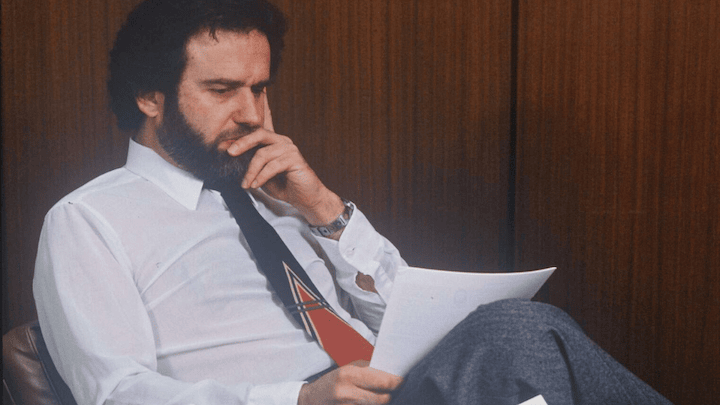
While he notes his success in the scientific and engineering area was built on his foundation of education – Bandler studied at Imperial College London and the University of London, England, where he received BSc (Eng), PhD and DSc (Eng) degrees – he knows it came with bumps along the way.
The first was from his own supervisor, who balked at Bandler’s idea of using a computer to solve problems; a pad of paper and pencil, they urged, was all you needed.
In fact, Bandler had faced much skepticism; his ambition sometimes drove people to high emotions.
“This is theatre,” he reflects.
It’s a fitting statement for Bandler, who also happens to be a theatre artist: he has been involved with and written numerous plays, one of which became a short film.
Life is a sandbox and I like to work with creative people in any field. Whether that sandbox is an electrical engineering department or community theatre or a bunch of aspiring creative writers, life is a sandbox – and you have to learn to play in it.
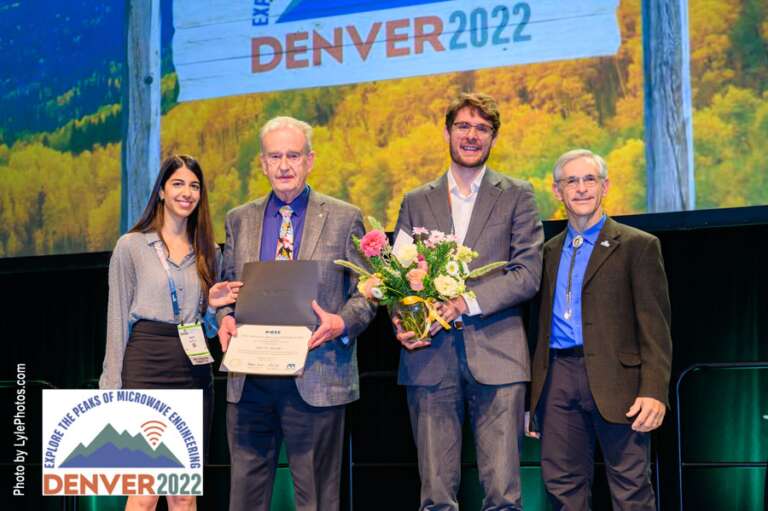
That skill is something he passes on in his mentorship of students, especially in the realm of presentations.
“Technical presentations are deadly, but they don’t have to be,” Bandler says.
He’s a long-time supporter of the Three Minute Thesis Competition, where he works with students to develop their performance skills to make a presentation as lively and thrilling as the research itself.
He has coached a lengthy list of winners, most recently Annika Yardy, co-valedictorian at spring 2022 convocation, who finished in first place in the recent competition hosted by chemical engineering.
At the 2022 IEEE International Microwave Symposium, Bandler was recognized with a thank you video for his substantial and meaningful contributions to the conference’s Three Minute Thesis Competition that he spearheaded and has co-organized since 2017.
Bandler has continued his mentorship in his own workshops and other creative pursuits: the 2021 film he developed also incorporated the talents of three McMaster PhD students.
It hasn’t been all criticism for Bandler. His champions, he said, are at the core of his own persistence: co-workers who were willing to hang on to the “bitter end” when things looked dire and colleagues who helped him develop science and art.
“At every stage of my career and life, I’ve had incredible people that have been on my side, from my nominator Natalia Nikolova at McMaster to mathematician Kaj Madsen in Denmark to the theatre director Tom Mackan here in Hamilton. We became lifelong friends as well as collaborators. That’s what keeps you going; you can’t work alone,” he says.
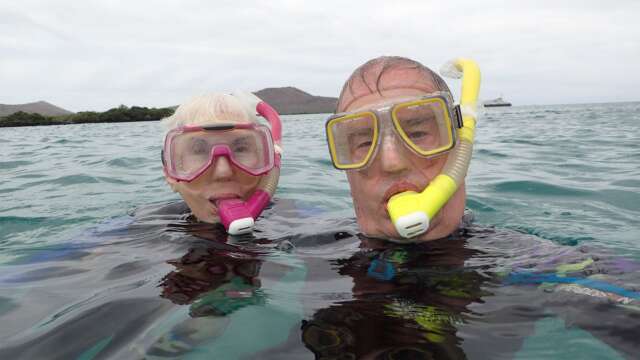
His advice to young researchers doing creative work is to push back.
If you want to be a pioneer, a clue that a certain direction is worth going in from a creative point of view is if you have a lot of naysayers. Because if you do go in that direction and you do succeed, you’ve proved them wrong.
“Just keep doing what you believe in doing. you’re not going to be successful in everything, but you will be successful in something.”
Watch John’s acceptance speech for this award:

